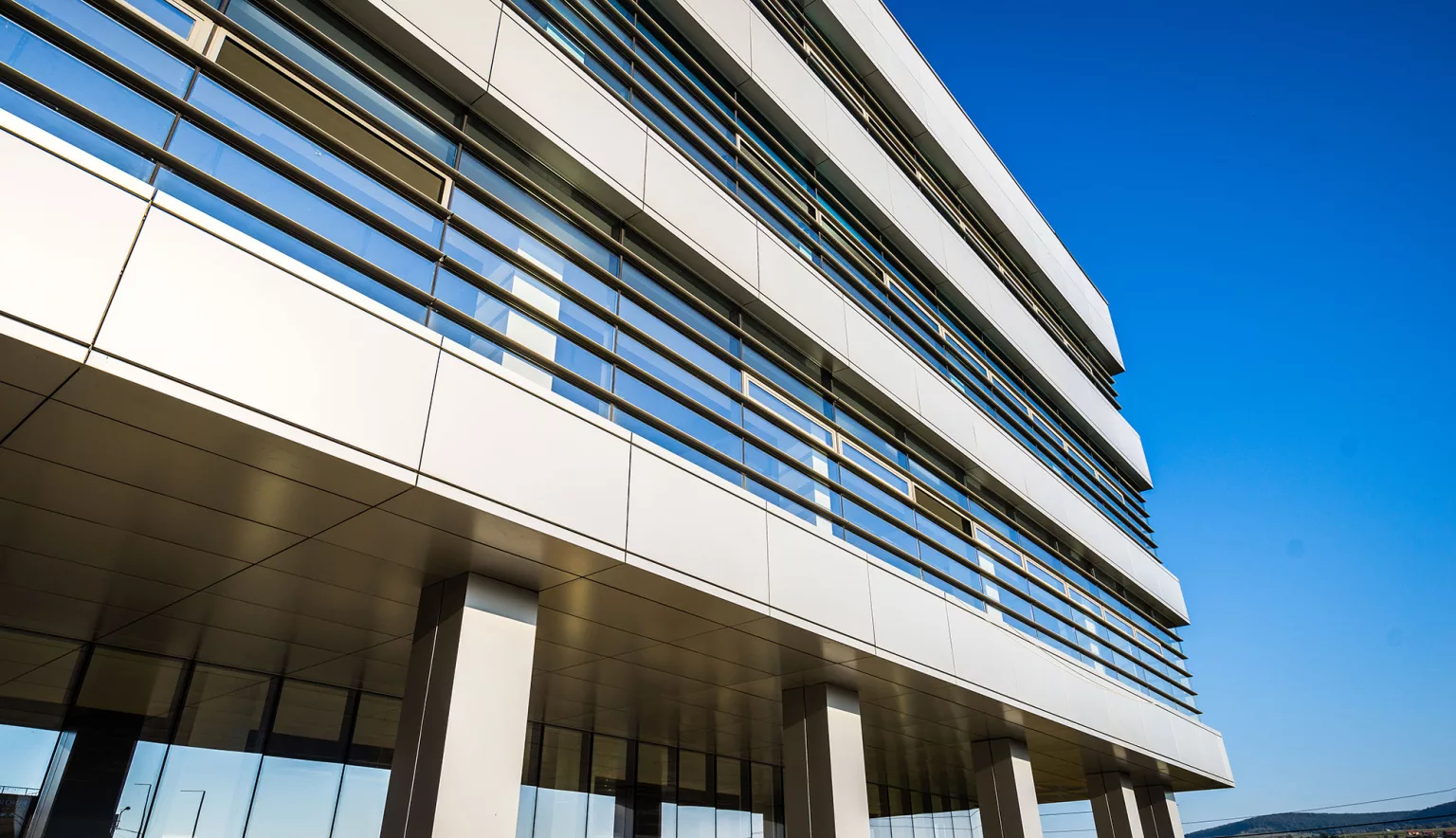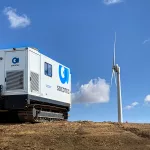Family firm Transilvania Constructii has set its sights on expanding its network of industrial parks around Romania, this having successfully completed a number of projects in its home region of Cluj-Napoca.
ROMANIA’S DILIGENT DEVELOPER
Family businesses are the lifeblood of the global economy.
Some 85 percent of startups are established with family money, while the majority (70-90 percent) of the world’s GDP is believed to be generated by businesses that are majority owned by a single family’s members.
Further still, family firms are shown to outperform nonfamily enterprises by 6.65 percent globally (in relation to return on assets) and as much as eight percent in Europe.
In Romania, Cluj-based Transilvania Constructii has been the endeavour of the Timofte family for several decades.
Set up in the 1950s when it was then known as Trustul de Constructii Cluj, the property investment and development enterprise was privatised in the 1990s before Andrei Timofte became CEO in 2011.
“I was lucky to have entrepreneurial parents,” he says.
“I really learned a lot from them, and I started working when I was about 18. Transilvania Constructii is a family business and early on I knew I wanted to continue my parents’ hard work. What I like about it is that it is a dynamic and challenging business that allows me to create new projects and help contribute to the development of a city or an area.”
The area in question, at least for now, is Cluj-Napoca. Here the company is determined to contribute to a market with potential and high yielding development opportunities in commercial property and residential buildings.
“Cluj is booming at the moment,” Timofte continues, “and I believe this trend will continue because it offers a good quality of life, great education and a qualified workforce.”
Although the CEO does point to a few challenges such as rising bureaucracy, finding and keeping skills and increased competition, Transilvania Constructii is operating in a local and national market that is beginning to bounce back strongly from a tough couple of years.
Indeed, construction output in Romania increased 34.2 percent in August 2019 compared to the same month in the previous year, with July seeing a record 41 percent year on year growth in overall work volume.
In terms of output value, the period 2019 to 2023 is forecast to see an average annual growth of 3.37 percent, the nation’s pipeline of projects worth $25 million or more standing at $103.1 billion as of May 2019.
“I believe Romania is now a much more mature market for both the construction and development sector,” Timofte says. “Compared to the Central Eastern Europe region, Romania has some of the best returns for commercial real estate, attracting foreign direct investment and local investment.”
CONSTRUCTING CLUJ
The company’s own developments reflect the CEO’s observations.
Today, Transilvania Constructii owns and manages commercial property, ranging from light industrial warehouses to large logistic hubs, as well as office space.
As mentioned, these developments focus on the Cluj-Napoca region, the company currently working on a handful of major projects. The first of these is Novis Plaza, a commercial office complex offering state-of-the-art working spaces for local businesses.
“Recently, we completed Building B of Novis Plaza, which provides around 7,000 square metres of rentable space,” explains Timofte.
“At present, Novis Plaza is composed of Building A and B, with a total amount of rentable office space measuring over 14,000 square metres. The general theme of the building is to increase the productivity and creativity of the employees through a mix of facilities dedicated to their wellbeing.”
Such facilities include a gym, lounge, games room, oasis terrace, meditation area and e-bikes, the site also fitted with 300 parking spaces, a restaurant and conference centre.
Transilvania Constructii’s other main projects focus on the industrial and logistical space in the form of three industrial parks, two of which are situated around Cluj.
TRC Park Jucu offers high-quality warehousing, office and parking facilities, the commercial centre proving to be a hit ever since it opened, enjoying a 100 percent occupancy through its first phase.
“We are currently expanding TRC Park Jucu with approximately 40,000 square metres of space,” adds Timofte.
“This is one of the most important investments made by our company in the Transylvania area, part of the logistics parks network developed under the TRC Parks brand, with the slogan ‘warehouses that work for you’.
“The logistics park offers its clients several services and facilities, including class A offices and warehouses, parking spaces for small trucks and cars, 24-seven security with a surveillance camera system, a fully fenced perimeter, outdoor LED lighting, HVAC system, and many others.”
TRC Park Jucu is also extremely well located, close to other business hubs, public transport links and Cluj’s international airport.
TRC Park Transilvania was the first logistic and industrial project developed by Transilvania Constructii in the Cluj-Napoca region, again accessible from the city centre and very close to the airport. Opening in 2002, it currently houses over 90 tenants with various requirements –from cold storage and retail to logistics and transportation.
EXPANDING EAST
Away from Cluj, the TRC brand has expanded into Bacau, near the border with Moldova.
“Our project in Bacau is a premium industrial park with class A warehouses on a seven-hectare land plot,” says Timofte.
“It is located in a strategic area in the region near Moldova, perfect for distribution and logistics. It is a greenfield development valued at around €15 million in an underdeveloped area, so we are a pioneer industrial developer here.”
Indeed, the eastern region represents a key focus area for the company as it seeks to expand beyond its home territory, the CEO looking to maintain high occupancy rates across the firm’s entire portfolio and increase rent roll by 20 percent in the near future.
It is an ambitious target, and one which will not be met without overcoming challenges, especially in the area of skills.
“The construction market is facing a huge difficulty in keeping a qualified workforce due to pressure on salaries and worker migration to Western Europe,” Timofte explains. “Because our real estate portfolio is expanding, the need for property management skills has become a challenge.
“To respond to this, we have recently implemented a property management strategy. Along with this strategy, we are actively seeking training and development opportunities for our property managers so they can be up to date with current trends and necessary skills.”
Such skills development will be vital in ensuring Timofte and Transilvania Constructii hit their target to successfully develop 40,000 square metres of industrial space in 2020.
And given the positive direction
Romania’s construction industry appears to be heading in, the CEO concludes about future prospects.
He says: “I am optimistic that the positive trend in the industrial market in Romania will continue. My view is that rents will increase in prime locations from major cities, and yields have the potential to align to the wider Central Eastern European region.”
























